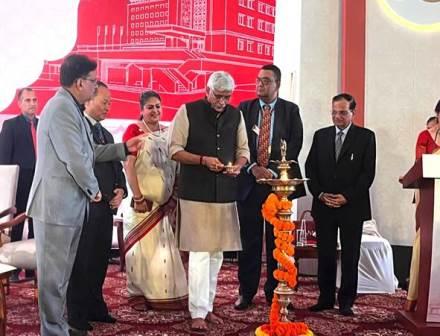Traveling away from the borders of one’s country to receive medical treatment is known as medical tourism. Policymakers, researchers, and the media are all taking notice of the rise in medical tourism. The phrase originally refers to patients traveling to developed countries from less developed ones in search of treatments not offered in their native country.
As people move from wealthier to less developed nations to get healthcare, patient mobility is changing both qualitatively and quantitatively today. The relative affordability of treatments in nations with fewer resources, the accessibility of cheap flights, and greater advertising and online consumer knowledge about the accessibility of medical services all contribute to this change.
People frequently stay in the other nation after receiving medical treatment, which is what genuinely puts the term “tourism” in medical tourism. Thus, visitors can make the most of their stay by going sightseeing, going on day trips, or engaging in any other usual tourist activities.
Why medical tourism should be the topic of discussion?
Medical tourism should be known to every individual because it can be very useful for their healthcare issues. It has several good points that can be considered when opting for healthcare such as:
Cost-effective
The price of medical treatments provided by medical tourism destinations is one of the key factors contributing to its growing popularity.
Fewer waiting periods
To avoid long wait times, patients who require urgent medical attention frequently choose to go outside of their own country. There is a much quicker approach to receiving the required care through medical tourism. For instance, it enables cardiac patients to receive high-quality medical care while having their operations performed at a lower cost and with reduced wait periods.
Exceptional Healthcare
International organizations like the Joint Commission International accredit many hospitals and clinics that provide services to medical tourists.
The variety of available procedures
Depending on their wishes, patients have a variety of treatments. They are now able to find a location that offers the best medical services with top-notch experts.
Having access to experts
Medical tourism may provide patients with the best exposure to some of the most qualified physicians in the world if they are looking for treatment from highly experienced specialists.
Alternative medical options are accessible.
When a patient is unhappy with their current treatment or procedure or it is not offered in their country, they may need to travel overseas to receive an alternative.
How medical tourism is different from traveling for treatment?
You are not necessarily engaging in medical tourism just because you are visiting another nation or area for health or medical reasons.
Medical tourism is the practice of going abroad intentionally to receive treatment that is more affordable and easily available. The vast majority of healthcare tourists travel for elective procedures that are, albeit more expensively, available in their native country (for example, cosmetic surgery or dental work). Additionally, some medical tourists go abroad to get better care than they would get at home.
Traveling for medical treatment differs from medical tourism in that patients have a greater likelihood to be referred by physicians in their native country.
What good impact does medical tourism have on people?
- Medical procedures are less monetary cost as compared to the greater cost of healthcare in the US or where you live.
- Access to all medical procedures, including those that may not be available in your nation or region.
- When a patient is unable to receive prompt care in a domestic hospital near their place of residence, medical tourism enables them to access care more quickly and with little to no waiting time.
- Patients who travel for medical treatment have the chance to see new places and cultures.
- Medical travel allows you to fly abroad where the savings range from 30% to 90% when you don’t have insurance or your health insurance doesn’t fully cover the cost of a procedure.
- The cost of international travel is lower.
- Healthcare technology improvements and international standards of care are both rising quickly.
- Medical travel enables you to undergo your procedure overseas without worrying that unwelcome family, friends, or neighbors would find out about it or bother you before you’ve fully recovered.
- There are new insurance solutions on the market that offer patient protection in the event of claimed medical misconduct abroad. To cover any unforeseen circumstances, certain medical facilities provide medical malpractice insurance.
Some of the problems people face during medical tourism :
- Language and cultural obstacles- Sometimes people who travel for medical reasons don’t enjoy the idea that they can’t directly interact with foreign medical personnel or employees while there.
- Medical travel might occasionally take a lot of time.
- Along with the cost of your medical procedure, additional expenses like a flight, accommodation, ground transportation, food, tours, etc., must be taken into account while planning your trip.
- Travel warnings and environmental risks in specific countries
- Depending on the medical facility and the nation you select, you may not have many options if anything goes awry during the medical treatment.










